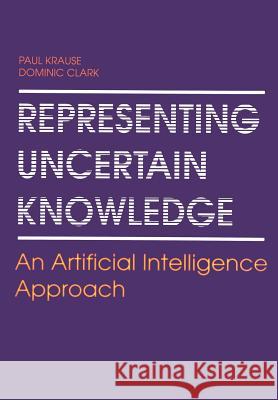Representing Uncertain Knowledge: An Artificial Intelligence Approach » książka
Representing Uncertain Knowledge: An Artificial Intelligence Approach
ISBN-13: 9789401049252 / Angielski / Miękka / 2012 / 277 str.
This book identifies the central role of managing uncertainty in AI and expert systems and provides a comprehensive introduction to different aspects of uncertainty and the rationales, descriptions (through worked examples), advantages and limitations of the major approaches that have been taken. The book introduces and describes the main ways in which uncertainty can occur and the importance of managing uncertainty for the production of intelligent behaviour in AI and its associated technologies of knowledge-based systems. It also describes the rationale, advantages and limitations of the major representational approaches (both quantitative and symbolic) that have been employed in AI systems and provides a worked illustration of each method. Finally, the book summarises the significant themes that have emerged from applications and the research literature and identifies current and future directions. The book, the first to concentrate wholly on this specific area of Artificial Intelligence, is aimed primarily at researchers and practitioners involved in the design and implementation of expert systems, other knowledge-based systems and cognitive science. It will also be of value to students of computer science, cognitive science, psychology and engineering with an interest in AI or decision support systems. While a technical book, technical details are presented in appendices, allowing the text to be read continuously by nontechnical readers. (abstract) This book assigns the central role of managing uncertainty to AI and expert systems while providing a comprehensive introduction to different aspects of uncertainty. The rationales, advantages and limitations of the major approaches to managing and reasoning under uncertainty are described using worked examples.











